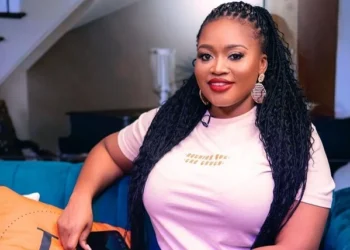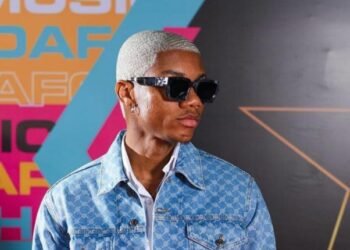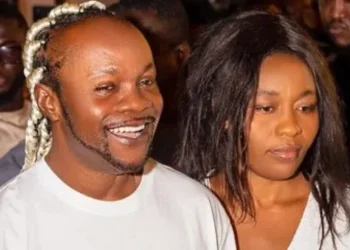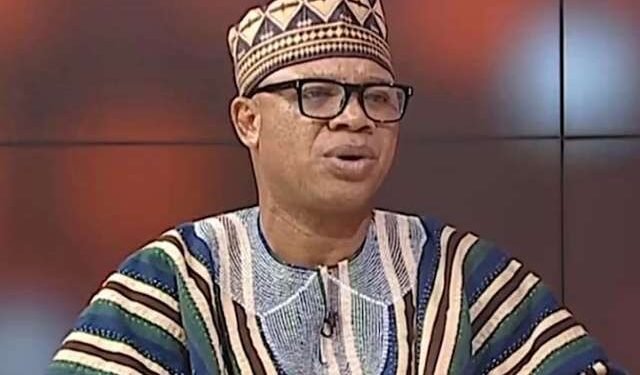Ghana, a nation rich in culture and diversity, boasts a vibrant entertainment industry that includes musicians, actors, and media personalities who influence public opinion significantly.
However, a recurring observation is that these showbiz figures ramp up their visibility and activism primarily during election seasons.
This trend raises questions about the motivations behind their engagement and the implications for civic participation in Ghana. Are these celebrities merely exploiting political opportunities for personal gain, or do they play a crucial role in shaping the political landscape?
Kojo Akoto Boateng, co-host of Joy FM’s Super Morning Show, has bemoaned Ghana’s creative sector’s lack of unity and strategic planning, attributing much of its stagnation to individualism and short-term political interests.
“What I’ve noticed about the showbiz space is that we get active during elections and people largely follow their stomachs and we are so divided,” he said, comparing the fragmented approach of creative industry players to that of stakeholders in the agricultural sector, who he believes are more concerned with collective welfare than political affiliation.
His comments came as the United Kingdom announced a £30 million investment package for its music and wider creative industries, forming part of a broader 10-year strategy aimed at unlocking economic growth, nurturing talent and supporting innovation across sectors like fashion, film, gaming, and design.
The plan is expected to generate an additional one million jobs and boost the UK economy by £50 billion by 2030.
In Ghana, celebrities are not just entertainers; they are influential figures who sway public opinion and mobilize the masses. Their platforms allow them to reach vast audiences, making them powerful agents of change.

During election periods, these personalities often use their influence to encourage voter registration, promote civic education, and advocate for political accountability.
For instance, popular musicians like Sarkodie and Stonebwoy have utilized their music and social media presence to address political issues, urging their followers to participate in the electoral process.
This engagement is not merely opportunistic; it reflects a sense of responsibility to their communities and an understanding of the impact they have on democratic participation.
Ghanaian culture places a high value on community and social responsibility, and celebrities are often seen as role models. Their active participation in elections inspires civic engagement among the youth, who make up a significant portion of the electorate.
The excitement surrounding elections provides an opportunity for these figures to connect with their fans on a deeper level, using their platforms to discuss pressing national issues.
This cultural context helps to explain why showbiz personalities seem more active during elections; they are responding to societal expectations to engage with their communities and contribute to the democratic process.
Criticism of Celebrities’ Election-Season Activism

Despite the positive aspects of celebrity involvement in politics, there are criticisms that this engagement is superficial.
Critics argue that some showbiz figures prioritize personal branding over genuine political advocacy, using their platforms to gain visibility rather than promote meaningful change.
This perspective raises concerns about the authenticity of their messages and the potential for disillusionment among voters who feel manipulated by these public figures.
However, it is essential to recognize that the motivations of showbiz personalities are complex and multifaceted, often intertwining personal ambition with a genuine desire to effect change.
The rise of social media has transformed the landscape of political engagement in Ghana, allowing celebrities to interact directly with their followers and amplify their messages.
Platforms like Twitter, Instagram, and Facebook have become vital tools for political discourse, enabling showbiz personalities to share their views and mobilize support for various causes.
During elections, this digital engagement becomes particularly pronounced, as celebrities leverage their online presence to encourage voter turnout and promote political discussions.
The immediacy and reach of social media further highlight the importance of celebrity activism in shaping the political narrative in Ghana.
While it appears that Ghana’s showbiz personalities only become active during elections, their involvement is indicative of a broader cultural and societal context that values civic engagement and social responsibility.
These figures play a crucial role in mobilizing the public, fostering political discourse, and inspiring democratic participation among the youth.
Rather than viewing their activism as opportunistic, it is essential to recognize the potential for celebrities to serve as catalysts for change in Ghana’s political landscape.
As the nation continues to navigate its democratic journey, the engagement of showbiz personalities will remain an integral part of the electoral process, shaping the future of civic participation in Ghana.






















